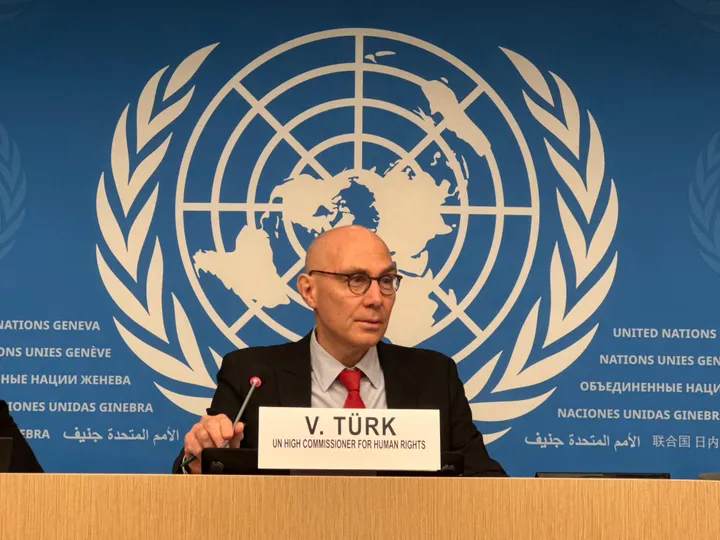Two significant visits this summer have shown how Iraqi power brokers are preparing for Iraq’s elections in April 2018.
First, former Iraqi prime minister and current vice-president, Nuri Maliki paid a visit to Moscow, meeting Russian president Vladimir Putin.
Second, the Iraqi Shia cleric Moqtada al Sadr—who holds no official position in the Iraqi government—visited Saudi Crown Prince Mohammad bin Salman.
The significance of these events is that they indicate the nodes of power that are vying for control in the aftermath of the liberation of Mosul. These power brokers are seeking foreign patronage to bolster their positions domestically, yet are also indicative of regional and international powers vying for influence in Iraq, as ISIS’s (Daesh) power wanes.
As ISIS is defeated, an Iranian-US battle for influence over the Iraqi state will ensue. The visits to Russia and Saudi Arabia respectively, serve as messages to the US and Iran that the influence they gained in Iraq – by combatting the Islamic State – can, and will, be contested by Iraq’s political elite.
Iraq’s domestic politics
Maliki’s meeting with Putin was surprising given that the former is one of Iraq’s three vice presidents, which are primarily ceremonial roles. Maliki stepped down in the summer of 2014 after the ISIS capture of Mosul, partly due to pressure from the US, who sought out a more conciliatory politician, Haidar al-Abbadi, to assume the premiership. Maliki resigned, but has been planning for his political come back since then. If Maliki blames the US for unseating him, his visit with Putin communicates to Washington that he enjoys the support of another power broker in the region.
Moqtada Sadr has also been planning a political comeback since 2008, when his militia, the Mahdi Army was defeated in street battles by the Iraqi military with American support. Sadr’s tactic has been to embrace the street protests that erupted in 2015 over government corruption.
As the de-facto spokesperson of this movement, he used the protests to criticize Iran’s influence in Iraq’s domestic politics. Sadr further challenged Iranian influence in Iraq in 2017 by calling for the demobilization of the Iraqi Shia militias, many of which serve as Iranian proxies.
Because Sadr has been hesitant to embrace Iranian patronage, the Islamic Republic, he believes, will seek to deprive him of asserting his own presence on the Iraqi political landscape. By distancing himself from Iran, Sadr has sought to rebrand himself as an Iraqi nationalist, and both the protests and trip to Saudi Arabia, Iran’s regional rival, serve as a message to Tehran that Sadr can carve out his own political agency.
Both Maliki and Sadr are Iraqi Shia power brokers. Yet their divergent actions demonstrate that there is no united Iraqi Shi’a political bloc to speak of. Furthermore, incumbent prime minister Haider al-Abbadi, himself a Shia, has attempted to foster a sense of Iraqi nationalism and unity, since the national victory in Mosul in July. The month of August has foreshadowed how the Iraqi Shia political elites are already jockeying for position as the 2018 elections approach.
Russia’s Middle East Geopolitics
In the early stages of the fight against ISIS, the Iraqi state mulled bringing in greater Russian involvement into the fight in 2015. Under the Obama administration, US pressure sought to prevent Iraq from doing this. Unlike the Obama administration, the Trump administration might be ambivalent about Russia projecting its influence in Iraq, having practically ceded Syria to Moscow’s orbit as well.
Russia’s embrace of Maliki has to be put in context of how Moscow is assessing both American and Iranian power in Iraq after the liberation of Mosul.
Russia has witnessed the American approach to combatting ISIS in Iraq, in addition to Syria. The US prefers standoff warfare – aerial bombardment, with only a limited number of ground troops. In a post-ISIS Iraq, the only leverage the United States has on the ground is its 5,000 strong military advisory mission, and future prospects of American arms sales.
By investing in building up Iraq’s land forces, Iran was able to carve a land corridor for its ground forces up to the Iraqi-Syrian border, through Syria, finally culminating in Lebanon –providing a contiguous conduit for Tehran’s proxy on the Mediterranean, Hezbollah.
Russia, by deploying its military forces to Syria, was instrumental in enabling Iran to create this new geography.
Iran’s ability to invest in creating power on the ground will keep Baghdad firmly within Tehran’s influence. The US could wean Iraq away from Iran with the promises of arms sales, but Maliki’s trip to Russia, where he signed a contract on behalf of Iraq to purchase Russian T-90 tanks, demonstrates, first, that Iraq does have options beyond complete dependence on the US for national security. Second, while al-Abbadi has a good working relationship with the US, Maliki’s trip indicates that if he were elected, he would reorient Iraq towards a Russian-Iranian axis.
This episode demonstrates a continuous trend of how Iraq, and the region in general, has been penetrated by extra-regional powers, such as the US and Russia, and regional powers, Iran and Saudi Arabia. But rather seeing Iraq as a country that is acted upon by foreign powers, the actions of the Iraqi politicians demonstrates a willing embrace of this system, as long as it enhances their domestic power.























